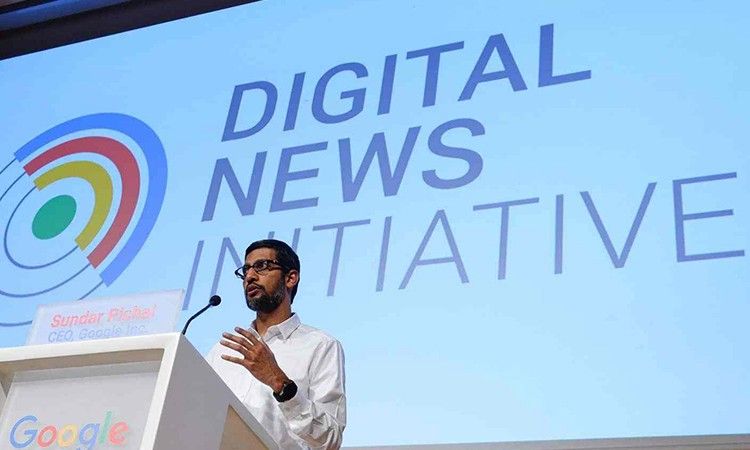Event Registry gets Google DNI funding
We’ve got great news to share with you today: Google’s Digital News Initiative has selected Event Registry as one of the projects for…

We’ve got great news to share with you today: Google’s Digital News Initiative has selected Event Registry as one of the projects for funding.
Google’s DNI Innovation Fund is a collaboration between Google and news publishers in Europe to support high-quality journalism. It offers funding for small, medium and large projects based on the submitted proposals. In July we asked for funding for a medium-sized project and we’re pleased to announce that our application has been accepted.
The aim of the 18-month project, which will be implemented in cooperation with the Slovenian Press Agency, is to develop Event Registry into a platform that can be used by news publishers to easily and quickly detect relevant news for them, to provide complete and accurate overview of global news reporting, and to analyze feedback on their content on social media. Specifically, we intend to modify and upgrade Event Registry (ER) to enable the following functionality:
- Alerts on new articles and events on relevant topics: Utilizing the rich semantic information, ER can provide a fast and feature-rich alerting system for new content of interest. Alerts can be customized in several ways: by topic, entity, geo-location, category, or any combination of the above. A feed of news articles and events matching these criteria will be provided as an end result, regardless of the input language.
- Providing comprehensive event coverage: Journalists and editors will be able to get up-to-date information with respect to new, developing and historical events as reported by other news publishers, published on social media and distributed in press releases. When working on a story, journalists and editors will have access to all currently published information regarding that event in a clear, easy to use format. This will simplify fact-checking, allow reporters to examine opposing views and ensure all relevant points of the story are understood. A library of past events across several years will also be an invaluable resource for research journalists who will be able to access the database through an exploratory interface with easy-to-use advanced search options. Visualizations will enable easier analysis of data.
- Contextualization: Events are commonly related to each other — a recent police shooting will, for example, have several consequences and follow-up events. Using the extracted information, ER can be extended to detect and show inter-dependencies between events. This will allow journalists to have a broader perspective on the event they are writing about and allow the quick insight into relevant related information.
- Identification of breaking events and trending topics: By analysing collected content, ER can identify new events that are gaining extended media coverage. These developing events are of likely interest to any publisher, regardless of their main area of reporting. By analysing the mentioned concepts, ER can also identify top entities and topics that are currently trending, which can be used by the editors to determine what events need additional coverage.
- Gap detection: News publishers will be able to analyse their feed of articles in ER to see how their reporting is positioned with respect to other geographically or thematically related news sources. The ER will construct a profile for each publisher based on their past reporting to identify relevant current events which are not yet covered by the publisher and would be of interest to their audience based on the locality and/or the news topic.
- Analytical dashboard: By analysing the publisher’s news content and simultaneously monitoring the impact of their content on social media, we can provide the publisher with a dashboard containing topics and content that generates the most social buzz. Analysis of various aspects of news articles (content, readability, topics, local vs. global reporting, time of release, etc.) we could go as far as to provide automatically generated suggestions for achieving the highest impact on social media.
The project will start early next year and we are looking forward to working closely with news publishers to develop a feature-rich platform for them.
